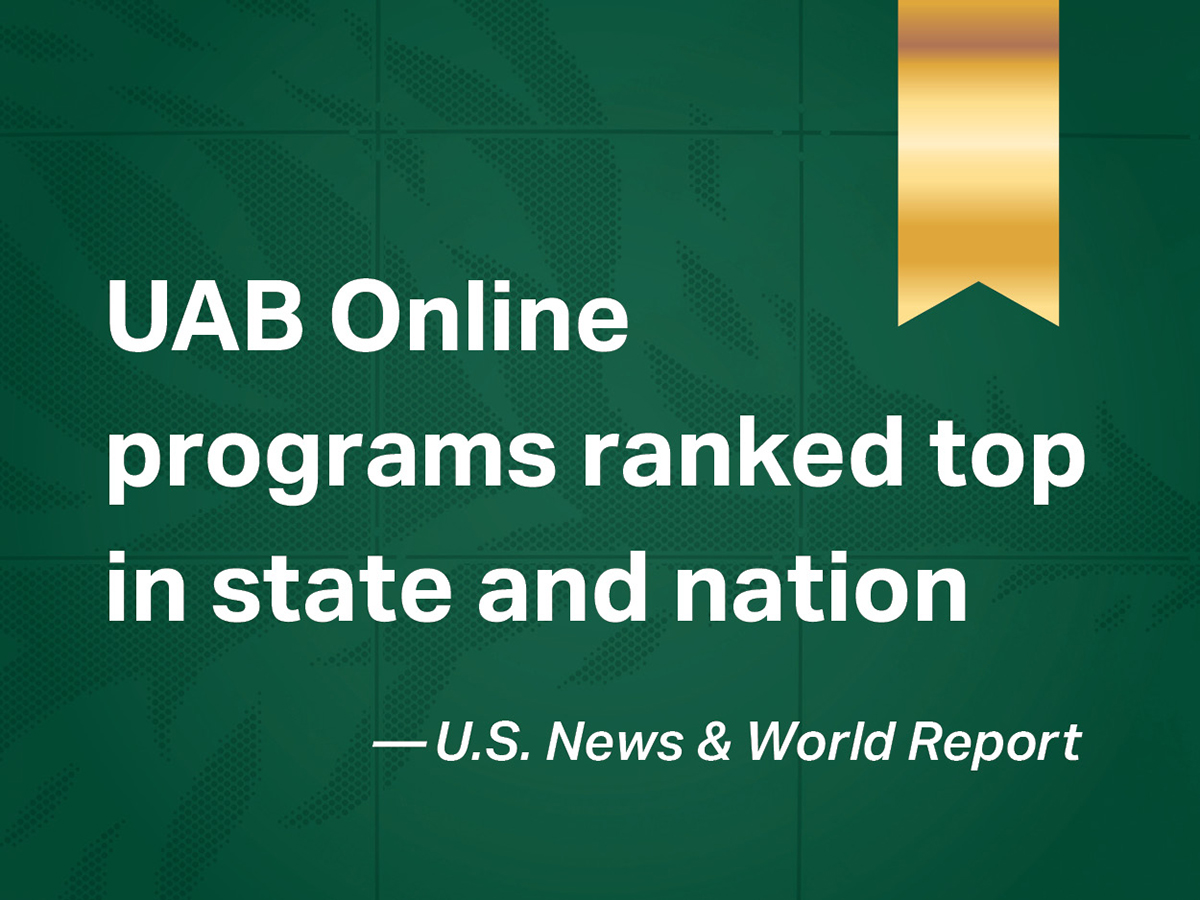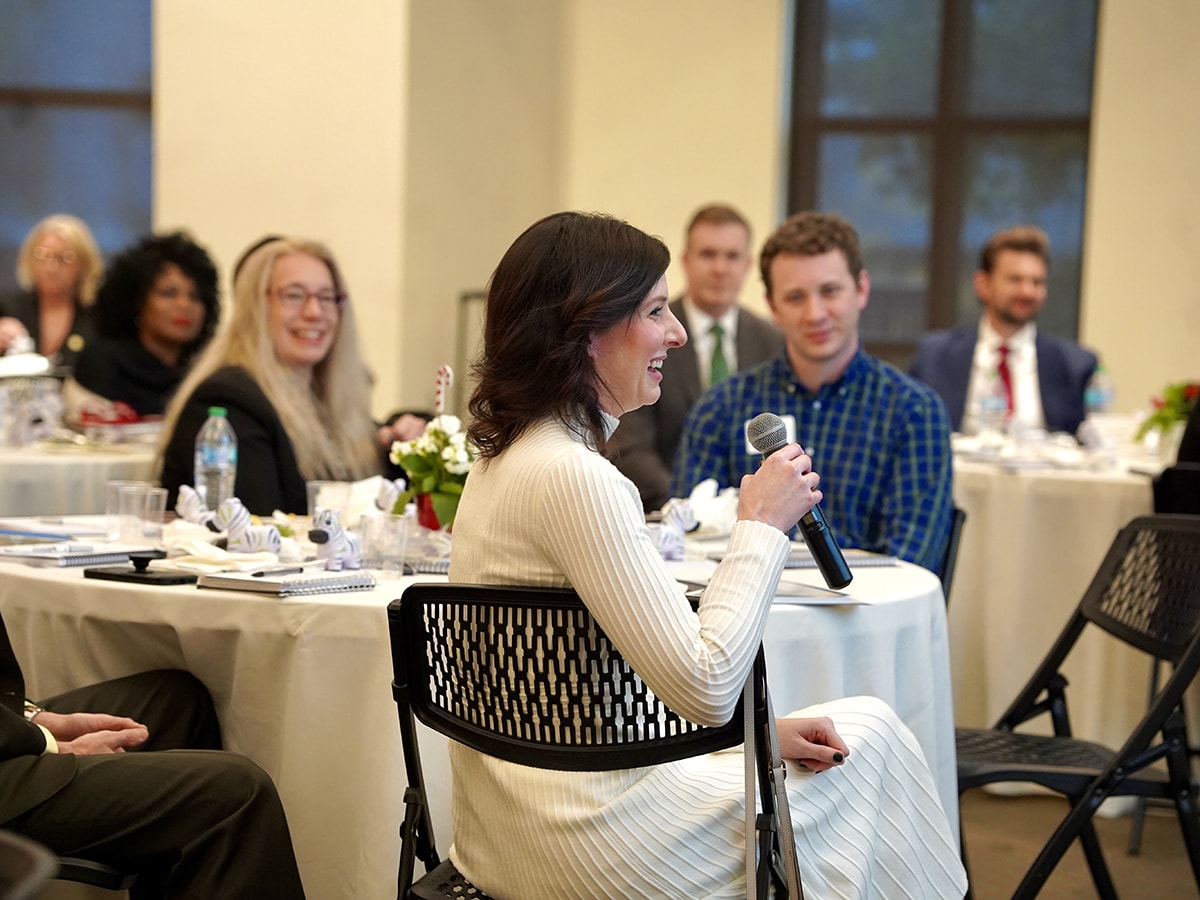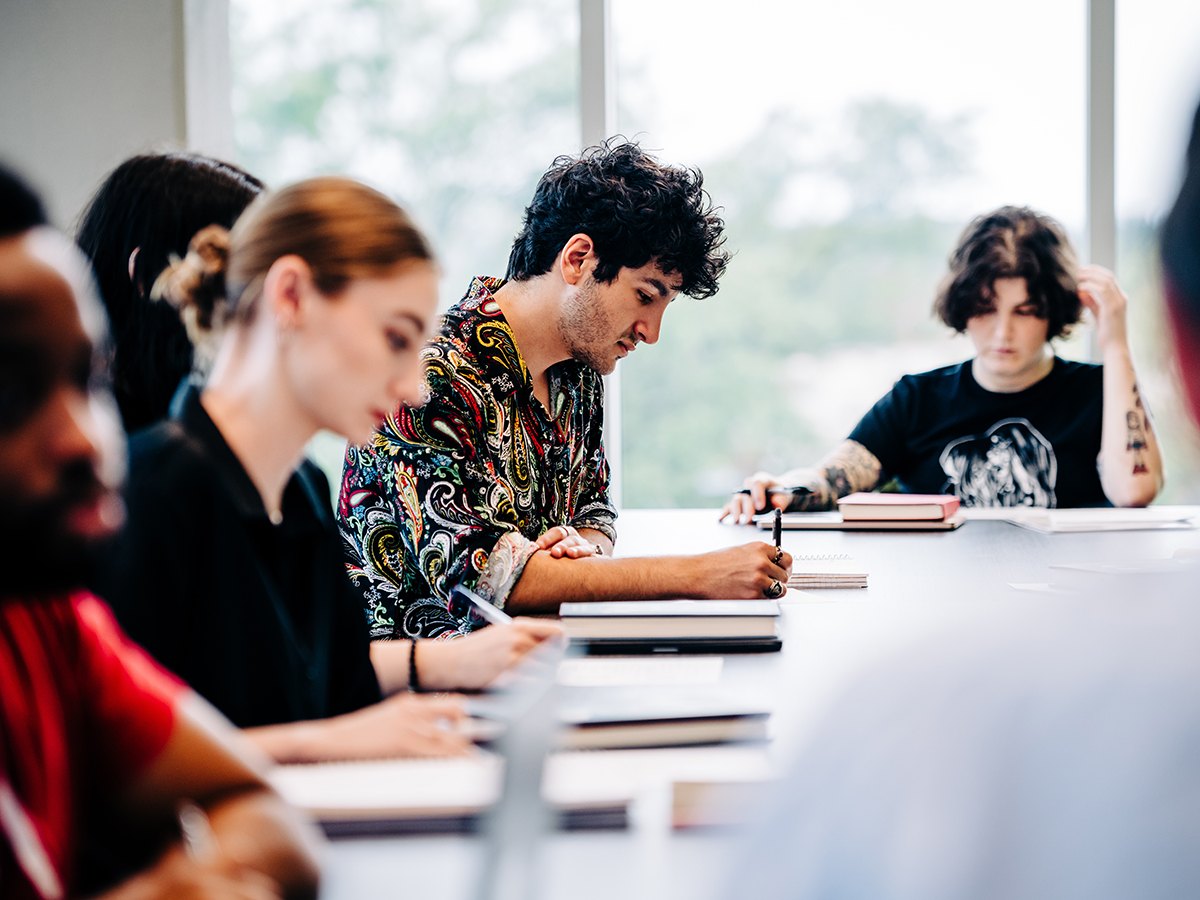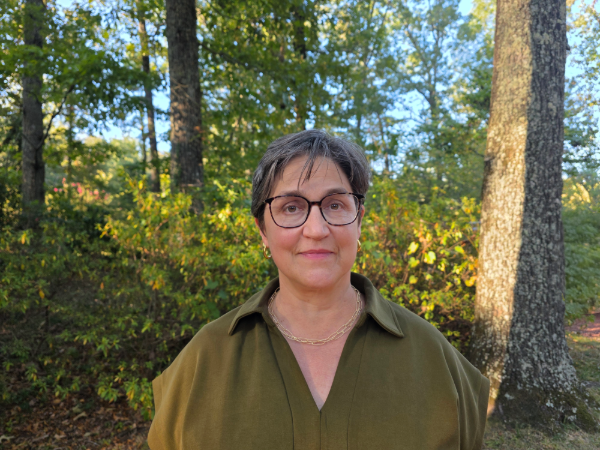
For Alison Chapman, Ph.D., professor in the Department of English, the University of Alabama at Birmingham has been more than the location of her 25-year career; it has been home. A Birmingham native, Chapman has always enjoyed the area from its proximity to Alabama’s foliage and fauna to the city’s ever-expanding food scene, yet for a time, she lived elsewhere.
“I hopped my way up the eastern seaboard,” Chapman said.
When she was 18, Chapman left the state to pursue her bachelor’s degree at Davidson College in North Carolina and continued northbound to the University of Pennsylvania, where she earned her master's and doctoral degrees. During her time in the north, Chapman delved into literary studies and discovered an interest in a particular period in history.
“I love what we call the early modern period or ‘the Renaissance,’” said Chapman. “I realized what I really love [about the Renaissance] is reading the literature written during that time period.”
Chapman began her journey at UAB in 2000 after teaching at Tulane University for two years. The city of New Orleans, however, was not a good fit.
“My husband, kids, and I love to do a lot of stuff outdoors. I love New Orleans, but I’m happiest out in a canoe paddling with my dog. New Orleans doesn't offer a lot of that,” said Chapman.
This reason, along with the desire to be closer to her family, brought Chapman back home to Birmingham.
“I started here [at UAB] as a brand-new assistant professor of Renaissance literature at the beginning of my career,” Chapman said. “Just a chance to move back to Birmingham and be near my folks has been a real joy.”
As a faculty member of the Department of English, Chapman has taught courses in 16th and 17th-century English literature, writing, and the history of the book. She progressed in her career and would later become the department’s director of undergraduate studies and soon step into the title of professor.
“I was grateful to have that opportunity. I really like helping students and faculty,” said Chapman. “Then from there, I think it was a pretty logical jump to move on to department chair.”
Chapman became the Department of English chair in 2015 and would serve in the role for nine years until stepping down in 2024. In her time as chair, Chapman achieved great accomplishments, including launching the Writing and Media major and being invited by former UAB Provost Pam Benoit, Ph.D., to co-chair the development of what is now the Blazer Core.
“I love figuring out different ways to support colleagues and new programs for students. It was such a privilege to work across the whole university with a fabulous committee of faculty members,” said Chapman.
This summer, while traveling abroad to visit her son in London, Chapman received a call from the College of Arts and Sciences that she needed to be a part of a meeting. She returned to the United States and learned that she was selected to receive the Ireland Award for Scholarly Distinction.
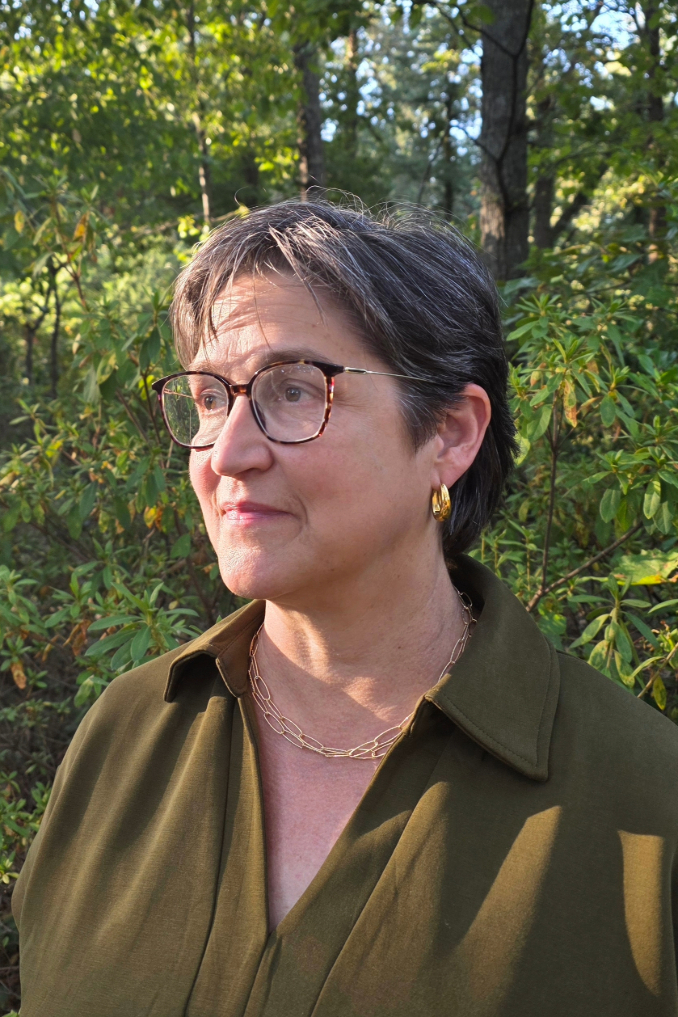
“I didn't have the first clue,” recalled Chapman.
The Ireland Award of Scholarly Distinction is the highest academic honor in the College of Arts and Sciences. It was established by Charles W. Ireland and his wife, Caroline P. Ireland, and is awarded to CAS faculty who demonstrate notable achievements in their field of the arts and sciences, have gained national and/or international recognition from peers, and demonstrated talents that contribute to the elevation of the arts and sciences at UAB and in the Birmingham community.
Chapman is known for her scholarship of poet John Milton and her time teaching Milton’s Paradise Lost to the incarcerated at the Donaldson Correctional Facility. With her publications, Chapman has been cited 400 times with topics ranging from Milton to legal history to English patrons and patron saints.
For Chapman, receiving the award was something she did not consider in the past.
“I am completely delighted and honored,” said Chapman. “I loved attending all these Ireland dinners in the past to support colleagues, so it's a special joy. Now I'm the one up at the podium.”
Lately, Chapman has been experiencing a renaissance of her own. She has been writing creative nonfiction pieces, continuing scholarly research on writing, and working on longer fiction projects. Chapman also participates in service roles at the university, including serving as chair of the Faculty Policies and Procedures Committee within the Faculty Senate. When she’s not teaching classes on English Renaissance poetry and prose, you can find Chapman and her dog paddling downstream early in the morning in their canoe on the Cahaba River.
The College will honor Chapman with a reception and dinner in November.
